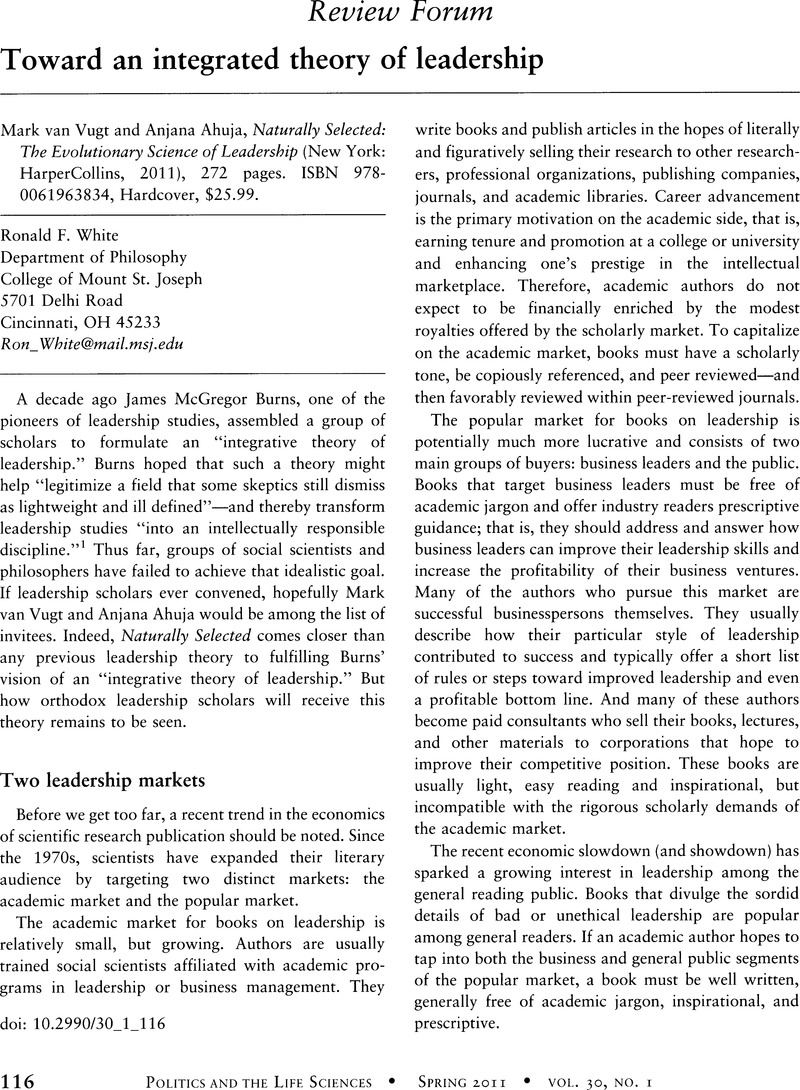Crossref Citations
This article has been cited by the following publications. This list is generated based on data provided by Crossref.
O'Connell, Patricia K.
2014.
A simplified framework for 21st century leader development.
The Leadership Quarterly,
Vol. 25,
Issue. 2,
p.
183.
Özcan, Muaz
2021.
The Bottleneck Metaphor of Leadership Culture: How Shared Understandings About Leadership Develop in Groups and Impede Diversity and Effectiveness of Leaders.
Frontiers in Psychology,
Vol. 12,
Issue. ,



